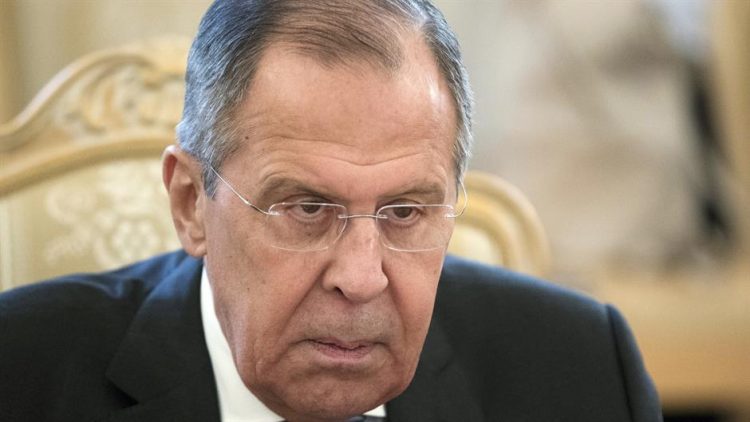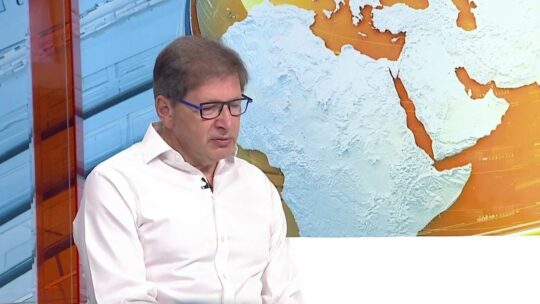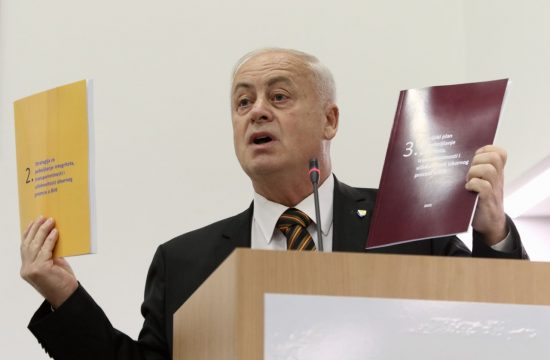
The arrival of Russia’s Foreign Minister to Bosnia and Herzegovina is especially important for Bosnia’s semi-autonomous Republika Srpska (RS) entity because the RS has an emotional connection with Russia, said Bosnia’s Foreign Minister Igor Crnadak.
“I can confirm that Mr Sergey Lavrov will visit Sarajevo, Istocno Sarajevo and Banjaluka. This is an extremely important event and I’m sure that Lavrov’s visit will strengthen Russia’s bonds with the RS and with Bosnia,” Crnadak said during a press conference. “He is one of the greats of world diplomacy and I am sure that his visit will be significant. What is especially important for me is the fact that we will discuss the political situation in Bosnia.”
Russia’s Foreign Minister is supposed to arrive in Bosnia on Thursday night and according to the visit protocol, he should visit Sarajevo and Banjaluka.
His visit officially begins on Friday, when he will meet with all three Bosnia’s Presidency members, and after that with the Foreign Minister Igor Crnadak.
Upon arrival to Banjaluka, he will visit the construction site of the Serbo-Russian Orthodox temple and meet with the RS President Milorad Dodik, Prime Minister Zeljka Cvijanovic and speaker of the RS National Assembly Nedeljko Cubrilovic.
Crnadak told the reporters that Lavrov’s visit has nothing to do with the general election campaign which is underway in Bosnia.
“We’ll talk about some regional issues. The fact that we can host Mr Lavrov is a sign of Russia’s support to everyone in Bosnia and a confirmation of our friendship. There are certain emotional ties between the RS and Russia and Lavrov’s arrival is especially important for me,” Crnadak concluded.
Speaking to N1, Bosnia’s Presidency member from among the Serb people, Mladen Ivanic said that so far, Russia only had a friendly relationship with Bosnia, which was proven on two major occasions, its payment of the Clearing debt and an agreement with Bosnia on ways of payment of the war-time debt for Russia’s natural gas.
Bosnia and Herzegovina inherited the Clearing debt after the break-up of the Federal Republic of Yugoslavia. The debt was made during foreign trade exchange between Yugoslavia and the former USSR, when the delivery of goods from one country to another, was paid by the so-called “clearing” of the debt, in order to avoid the conversion of the value of the delivered goods into the US dollars.
The money between the two countries never physically cross the border, but each of the two countries had an open account in one of its banks for payments on purchased goods and services. These accounts would be periodically settled through bank clearing, and each country would withdraw the corresponding amount of money it had previously paid in the name of payments for the delivered goods and services.
“Russia made several positive moves towards Bosnia. First, they paid their Clearing debt in cash. We’re the only country in the world that received a cash payment for Russia’s Clearing debt. I think there’s little appreciation of this in Bosnia. That was a clear example of Russia’s friendship,” Ivanic stressed. “Russia has also found a way for us to pay our gas debt over a prolonged period of time, which is a great concession on their behalf. They also opened the market to our fruit and vegetables and dismissed several cases of export abuse from Bosnia.”
He rated the relation between Bosnia’s Presidency and the Rusian Federation as very positive, but that some Bosniak politicians do not appreciate the support Russia provides to Republika Srpska entity’s right to exist.
Bosnia and Herzegovina consists of three constituent peoples, the Bosniaks, Serbs and Croats and is divided into two semi-autonomous entities: the Federation of Bosnia and Herzegovina, populated mostly by Bosniaks and Croats, and the Republika Srpska, which is dominated by ethnic Serbs. Bosnia also has the District of Brcko, to the North of the Country, which is not dominated by any of the three constituent peoples.




